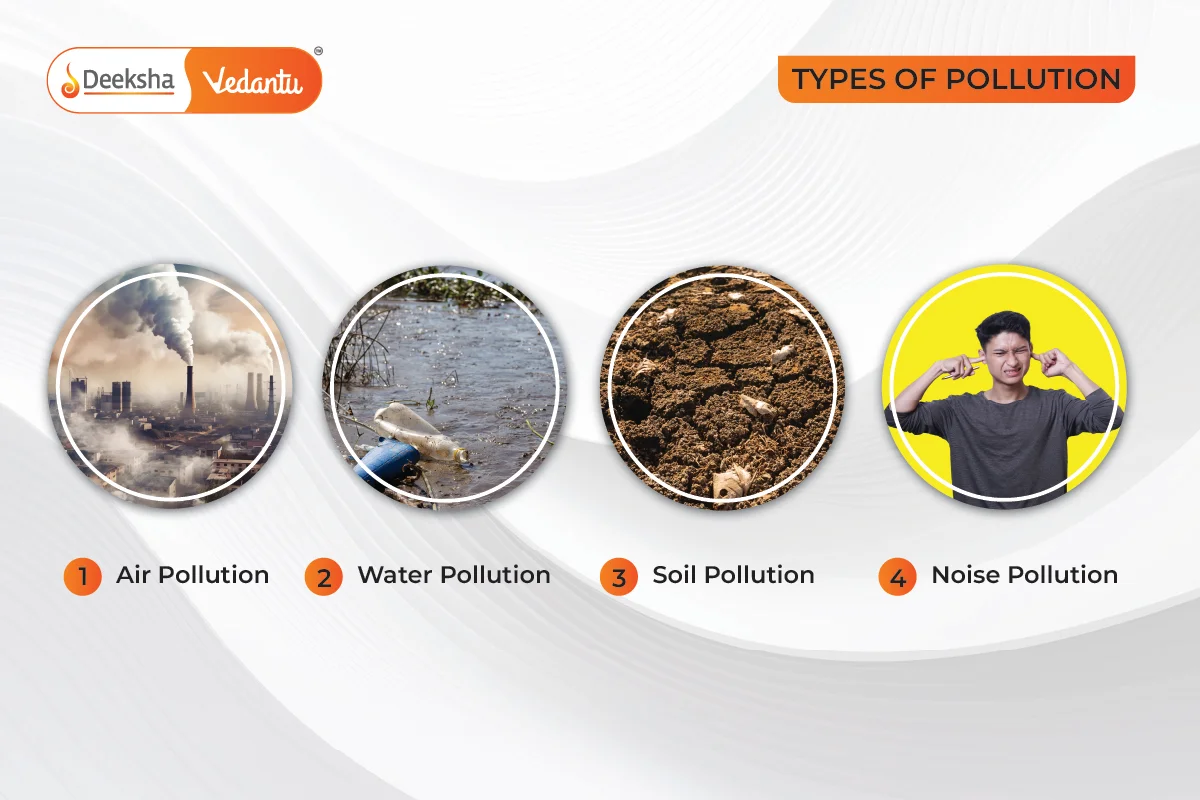Introduction to Pollution
Pollution is a pervasive and often irreversible issue resulting from human activities and natural processes. It significantly disrupts the ecological balance and health of living organisms, including humans. With the advent of globalization and industrialization, the demand for natural resources has escalated, leading to increased pollution levels. This detailed article explores various types of pollution, their causes, and the consequent impact on health and the environment.
Understanding Pollution
Pollution involves the introduction of harmful substances or forms of energy into the environment that result in adverse changes. These harmful substances, known as pollutants, can be chemical substances or energy forms like noise, heat, or light. Even small amounts of pollutants can disrupt the natural balance, causing significant ecological and health problems.
Major Types of Pollution

Pollution manifests in several forms, primarily caused by human activities though natural events like forest fires also contribute. The primary types of pollution include:
- Air Pollution
- Water Pollution
- Soil Pollution
- Noise Pollution
Other less common types include light pollution, thermal pollution, and radioactive pollution.
Air Pollution
Air pollution occurs when harmful substances including chemicals, gases, and particulates contaminate the atmosphere. Common sources include:
- Burning of fossil fuels: This releases a significant amount of carbon dioxide and other harmful pollutants.
- Industrial emissions: Factories and industrial processes emit various pollutants including sulfur dioxide and nitrogen oxides.
- Vehicle emissions: Automobiles produce nitrogen oxides, carbon monoxide, and other pollutants.
The consequences of air pollution are severe, affecting respiratory health, contributing to global warming, acid rain, and depleting the ozone layer.
Water Pollution
Water pollution happens when harmful substances contaminate water bodies such as rivers, lakes, and oceans. Major causes include:
- Industrial discharge: Factories discharging pollutants directly into water bodies without adequate treatment.
- Agricultural runoff: Pesticides and fertilizers washing into streams and rivers.
- Wastewater: Untreated or inadequately treated sewage entering water bodies.
The impacts are widespread, affecting marine life, increasing the prevalence of waterborne diseases, and disrupting ecosystems.
Soil Pollution
Soil pollution refers to the presence of toxic chemicals or other man-made materials in the soil that negatively affect its quality and the health of organisms depending on it. Sources include:
- Chemical spills and industrial activities that deposit hazardous substances directly into the soil.
- Agricultural chemicals such as pesticides and fertilizers that accumulate and degrade soil quality.
- Waste disposal and landfills that leach toxic substances into the soil.
Soil pollution leads to reduced agricultural productivity, affects plant and animal health, and causes bioaccumulation of toxins.
Noise Pollution
Noise pollution is caused by unwanted or harmful sounds that disrupt the balance of life and can lead to health issues. It is prevalent in urban areas and can stem from:
- Traffic: High volumes of road traffic contribute significantly to environmental noise.
- Industrial operations: Factories and construction sites generate substantial noise.
- Public events: Concerts, festivals, and public gatherings can create temporary but intense noise pollution.
Exposure to high levels of noise can cause hearing loss, stress, heart disease, sleep disturbances, and other health problems.
Repercussions of Pollution
The effects of pollution are not limited to environmental degradation but also include significant health impacts such as respiratory illnesses from air pollution, waterborne diseases from water pollution, and cancer from chemical exposures in soil. The global impact includes climate change from greenhouse gases and biodiversity loss due to habitat degradation.
Conclusion
Addressing pollution requires a comprehensive approach involving policy regulation, technological innovation, public awareness, and international cooperation. Reducing pollution not only improves the environment but also enhances the quality of life and health of populations globally.
FAQs
Reducing noise pollution can be achieved by using soundproof materials in construction, regulating noise levels in urban areas, and promoting quieter technologies in transport and industry.
Causes of soil pollution include industrial waste, agricultural chemicals, and improper disposal of hazardous materials.
Water pollution can cause waterborne diseases, affect marine life, and lead to ecosystem imbalances.
Air pollution can lead to respiratory diseases, cardiovascular conditions, and can exacerbate asthma and other lung conditions.
The main types of pollution include air, water, soil, and noise pollution.












Get Social